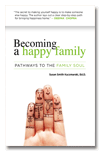What Should Parents Know About
Social Media and Teens?
1. Know that teens are very different beings than adults. My research looked at the social learning that occurs in teen peer groups in settings outside school. Consider the following mix of common teen traits that parents, teachers and those who work with teens must keep in mind at all times:
- A new mode of thinking, which Piaget termed “formal operations,” lets teens think in different and more abstract ways than was possible when they were children. Unlike adults, they aren’t very good at using this new thinking and need lots of practice using it.
- Self-consciousness, sometimes called an “imaginary audience,” can be overwhelming in teens. They assume that everyone around them is preoccupied with the same subject that engrosses them: namely, themselves. This is the “everyone is watching” me and is as interested in my behavior and appearance as me. Because of this, teens are very sensitive about public exposure. Adults who work with teens must avoid public correction or criticism. If they have to speak to a teen about behavior, they should do so in private.
- Self-centeredness exists. Teens are caught up with the transformations that they are undergoing—in their bodies, in their feelings, in their emotions, and in their new thinking powers.
- Teens don’t know their feelings all that well and may not be able to identify and label them. Moreover, their moods change so rapidly that choices made on the basis of the feeling of one moment may not be suited to the feelings of the next. As a result, there is a poor fit between teenagers’ decisions and feelings.
2. To top off this teen mix, keep in mind that teens truly believe that they absolutely do not want controls, and that without them (i.e. complete freedom) they would do just fine. But the fact is that controls do act as a source of unacknowledged security for teens. Total responsibility for one’s life — total freedom — is a scary thing. It brings stress and teens have enough going on in their lives to bear the full brunt of worrying about what is best for them. Freedom, while appropriate for adults, is strangely inappropriate for teens. They still need support, guidance, and direction, as infuriating as this is for them. To be truly free, truly responsible for themselves, psychologists say, is not what they really desire.3. Importantly, teens must get connected to their core — their authentic self — and make decisions from that place. If they are confused, then it is best to help them work on a plan to minimize their confusion. And keep the above points in mind. As parents, we can help by offering comfort and assistance during a teen’s turning points and passages—NOT EXPOSE THEM ON SOCIAL MEDIA.
3. Some tips to help teens—and their parents—grow emotionally that don’t use social media:
–Respect and honor your teens and trust them to make good decisions. Let them learn from their mistakes.
–Remind them that you love and support them.
–Steer away from contentious topics and honor the decision of your teen not to discuss those hot-button topics. Exert some self-control.
–Focus on their strengths. As parents we tend to harp on problem areas. Talk about what they do well, not what they need to do better.
–Find fun activities. Go to a spa with your daughter or a sports event with your son (or vice versa). You’ll strengthen the relationship and if you’re fun to be with, they’ll want to be with you more often.
For more tips, read the following article in Woman’s Day:

 Dr. Susan Smith Kuczmarski has taught at 8 universities, now at Northwestern University and Loyola University in Chicago. She is an award-winning author of 6 books, 3 on families and 3 on leadership, including her newest, Becoming A Happy Family: Pathways to the Family Soul (2015), and her best-selling, The Sacred Flight of the Teenager: A Parent’s Guide to Stepping Back and Letting Go, which was released (2019) in Egypt in Arabic. Trained as a cultural anthropologist, she has researched extensively how children learn social skills and teens become leaders. A frequent radio and television guest, she has appeared on "The Today Show" and speaks regularly to parents and educators. Listed in Who's Who in the World for 12 years and an International Fellow of Columbia University, her 35 years of college teaching and research have made her an expert on issues devoted to the contemporary family.
Dr. Susan Smith Kuczmarski has taught at 8 universities, now at Northwestern University and Loyola University in Chicago. She is an award-winning author of 6 books, 3 on families and 3 on leadership, including her newest, Becoming A Happy Family: Pathways to the Family Soul (2015), and her best-selling, The Sacred Flight of the Teenager: A Parent’s Guide to Stepping Back and Letting Go, which was released (2019) in Egypt in Arabic. Trained as a cultural anthropologist, she has researched extensively how children learn social skills and teens become leaders. A frequent radio and television guest, she has appeared on "The Today Show" and speaks regularly to parents and educators. Listed in Who's Who in the World for 12 years and an International Fellow of Columbia University, her 35 years of college teaching and research have made her an expert on issues devoted to the contemporary family.
















